Authors & editors
ANU Press has collaborated with a diverse range of authors and editors across a wide variety of academic disciplines. Browse the ANU Press collection by author or editor.
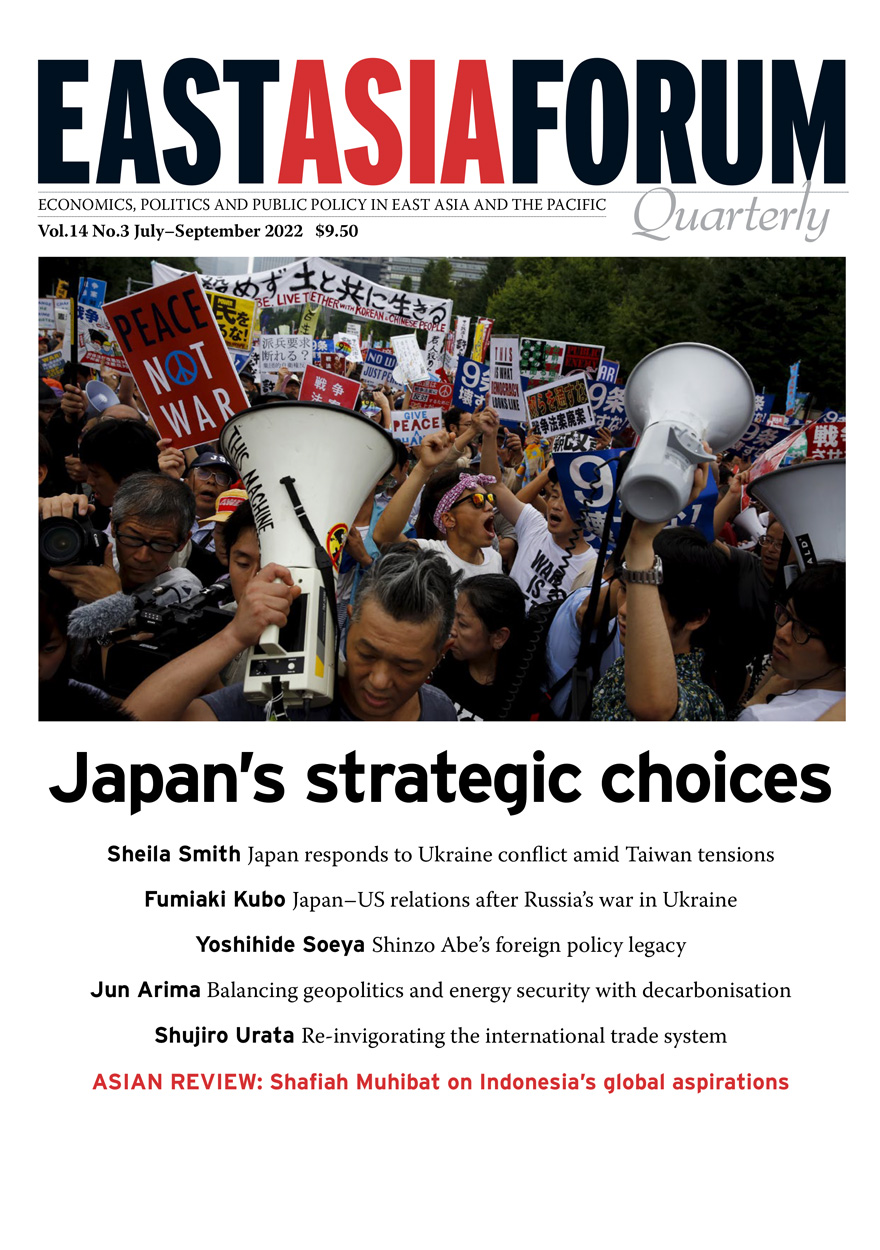
East Asia Forum Quarterly: Volume 14, Number 3, 2022 »
Publication date: September 2022
Japan ‘crossed the Rubicon’ after Russia’s invasion of Ukraine. Unlike eight years ago when Russia annexed Crimea, the Kishida government quickly implemented sanctions against Russia with other Western countries. Japanese people have generally stood behind the Kishida government’s foreign and security policy activism, yet uncertainties about Japan’s future remain. Can Japan confront ‘a three-front war’ against China, North Korea and Russia? How can Japan manage its relations with the United States and China amidst great power competition and a growing risk of military conflict? How can it cope with inflation, energy shortages, global warming and the crisis of the nuclear non-proliferation regime? Domestically, Japan has yet to escape from the impact of COVID-19. Maintaining international competitiveness in an era of ageing and shrinking population remains a top priority for Japan. The articles in this EAFQ examine the challenges and opportunities facing Japan and explore its future in an era of growing uncertainty.
Download for free
Not available for purchase
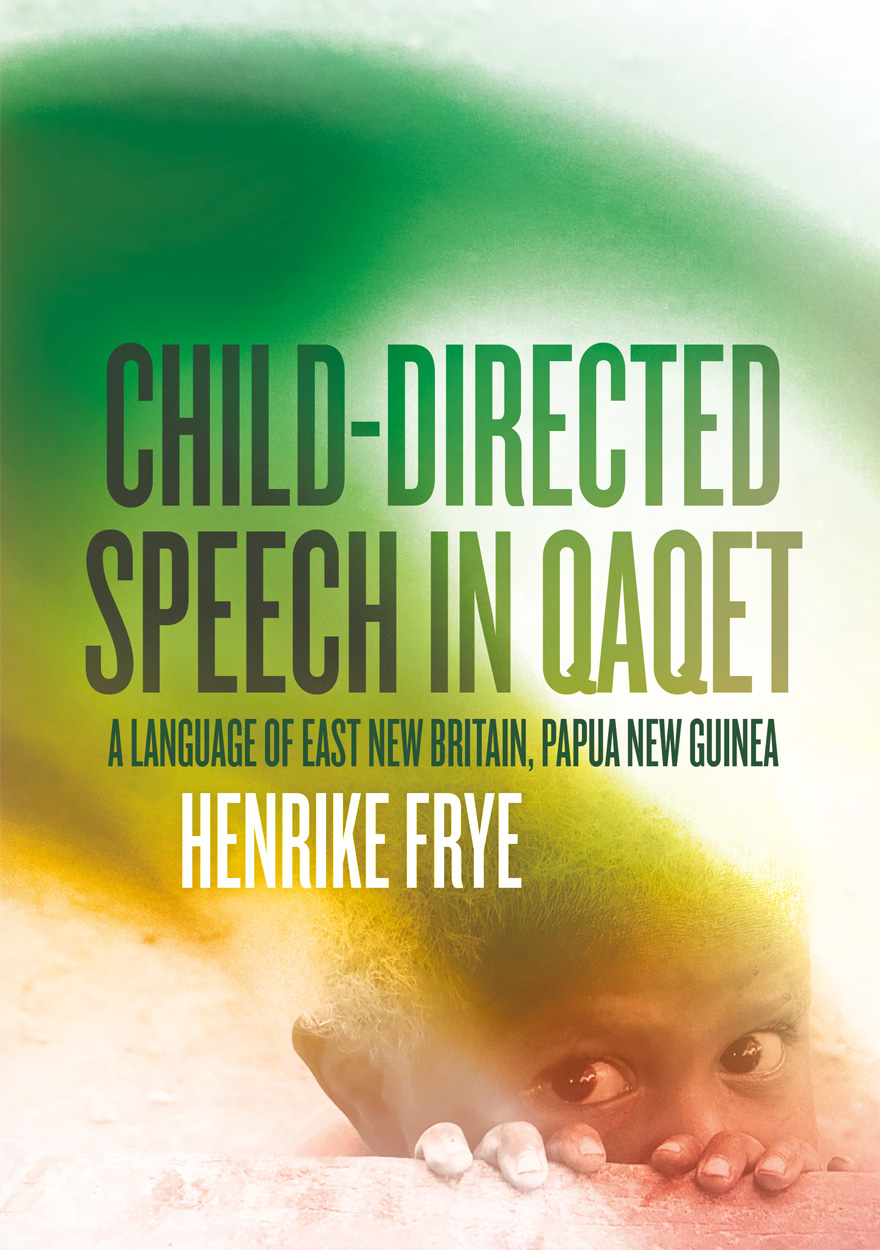
Child-directed Speech in Qaqet »
A Language of East New Britain, Papua New Guinea
Authored by: Henrike Frye
Publication date: August 2022
Qaqet is a non-Austronesian language, spoken by about 15,000 people in East New Britain, Papua New Guinea. In the remote inland, children acquire Qaqet as their first language. Much of what we know about child‑directed speech (CDS) stems from children living in middle‑class, urban, industrialised contexts. This book combines evidence from different methods, showing that the features typical for speech to children in such contexts are also found in Qaqet CDS.
Preliminary insights from naturalistic audio recordings suggest that Qaqet children are infrequently addressed directly. In interviews, Qaqet caregivers express the view that children ‘pick up’ the language on their own. Still, they have clear ideas about how to talk to children in a way that makes it easier for them to understand what is said.
In order to compare adult- and child-directed speech in Qaqet, 20 retellings of a film have been analysed, half of them told to adults and half to children. The data show that talk directed to children differs from talk directed to adults for several features, among them utterance type, mean length of utterance, amount of hesitations and intonation. Despite this clear tendency, there seems to be a cut-off point of around 40 months of age for several of those features from which the talk directed to children becomes more like the talk directed to adults.
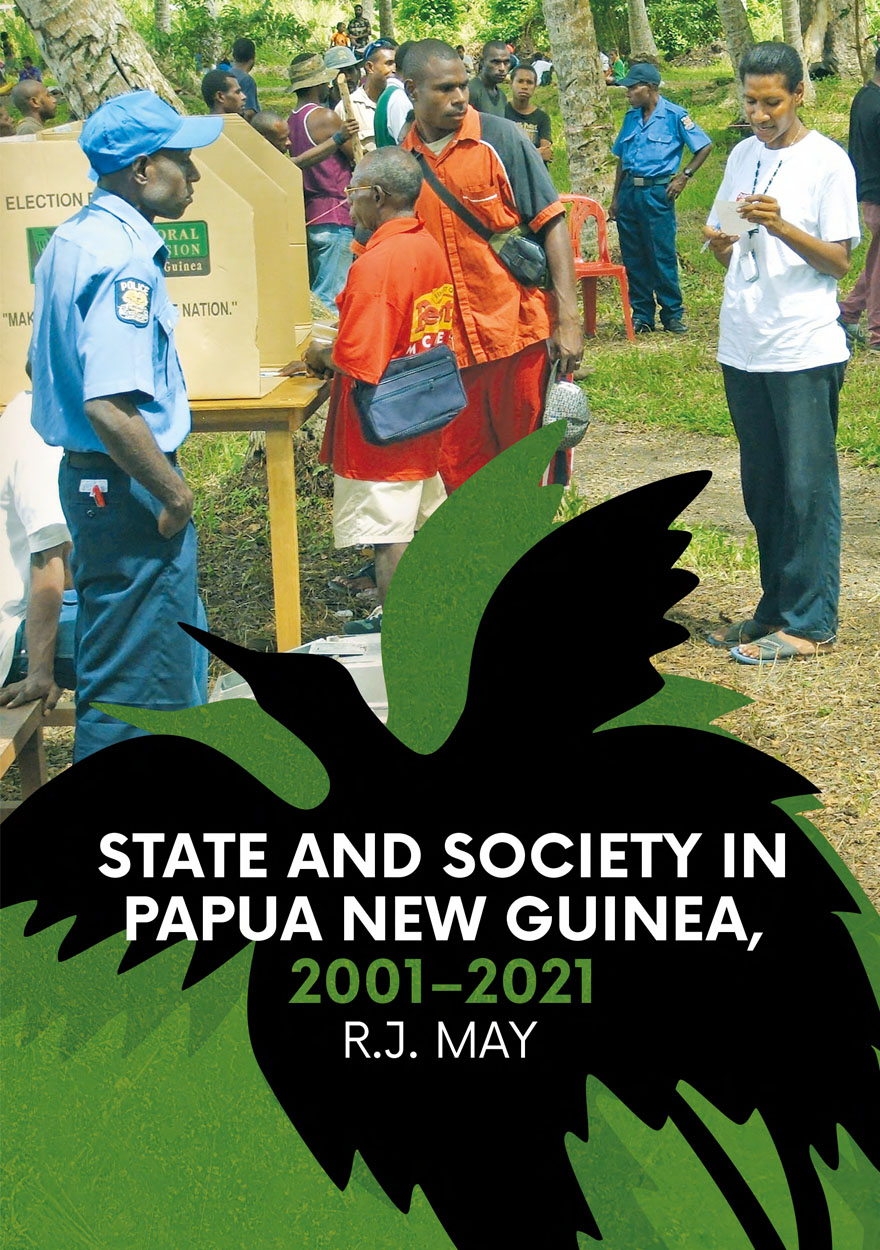
State and Society in Papua New Guinea, 2001–2021 »
Authored by: R.J. May
Publication date: August 2022
In a previous volume, State and Society in Papua New Guinea: The First Twenty-Five Years (2001, reprinted by ANU E Press in 2004), a collection of papers by the author published between 1971 and 2001 was put together to mark Papua New Guinea’s first 25 years as an independent state. This volume presents a collection of papers written between 2001 and 2021, which update the story of political and social development in Papua New Guinea in the first two decades of the twenty-first century.
The chapters cover a range of topics, from an evaluation of proposals for political reform in the early 2000s, a review of the discussion of ‘failing states’ in the island Pacific and the shift to limited preferential voting in 2007, to a detailed account of political developments from the move against Sir Michael Somare in 2011 to the election of Prime Minister Marape and his performance to 2022. There are also chapters on language policy, external and internal security, religious fundamentalism and national identity, and the sustainability of economic growth.
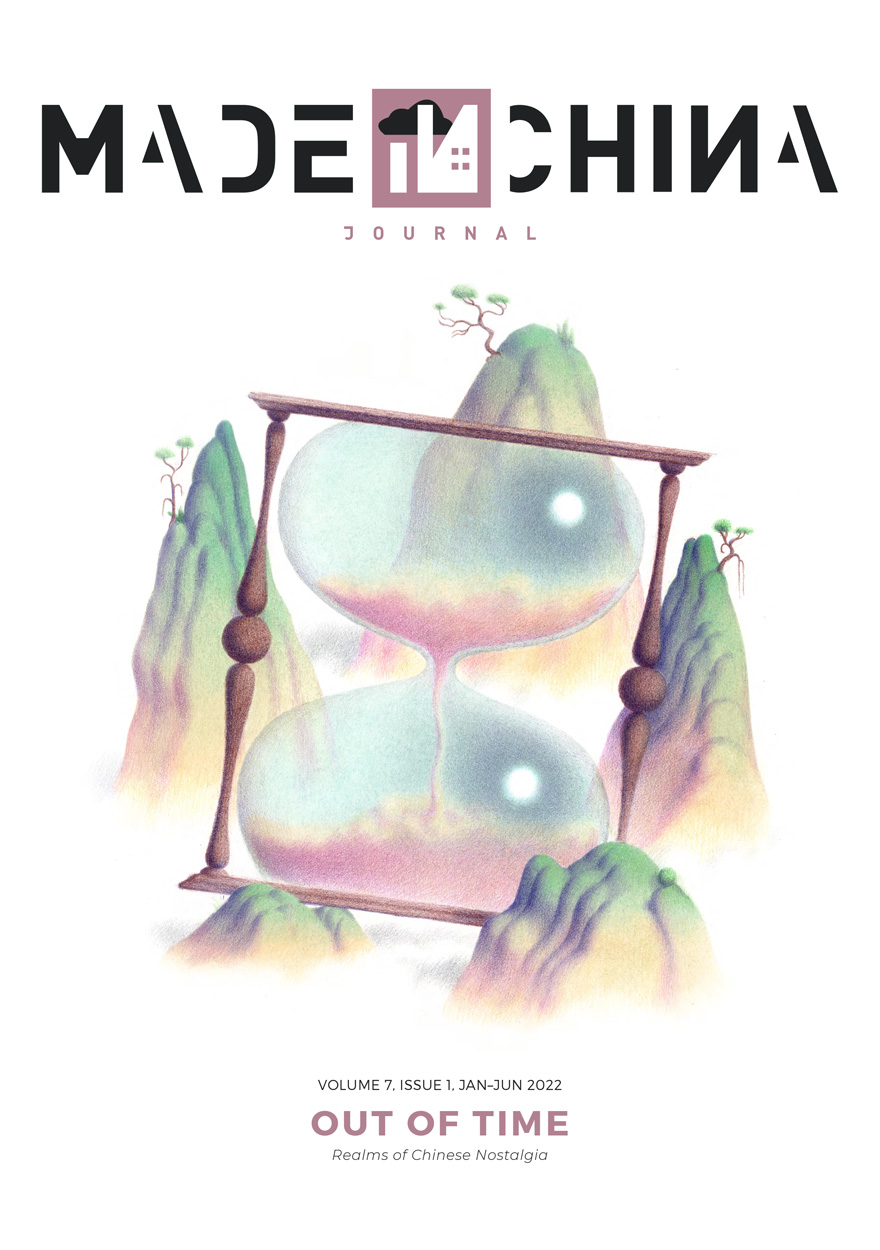
Made in China Journal: Volume 7, Issue 1, 2022 »
Publication date: August 2022
Cultural theorist Svetlana Boym famously distinguished two types of nostalgia: a restorative one that ‘manifests itself in total reconstructions of monuments of the past’; and a reflective one that ‘lingers on ruins, the patina of time and history, in the dreams of another place and another time’. But nostalgia is not necessarily only backward-looking. Rather, it can represent a feeling of longing for a future yet to be lost or even realised. For the historian Roxanne Panchasi, nostalgia may originate in the ways in which people anticipate and plan their lives around an expected future. This anticipated future, Panchasi intimates in her 2009 book Future Tense, ‘can tell us a great deal about the cultural preoccupations and political perspectives of the present doing the anticipating’. In these and other ways, nostalgia can actualise in cultural expression and performance within communities of nostalgia and as immersive environments that shine a light on past trauma to move closer to reconciliation. Contributors to this issue of the Made in China Journal explore the workings of nostalgia in people’s memories and spaces in China from a variety of perspectives to uncover how and why admirers of the Maoist and post-socialist eras express their longings for pasts real, imagined, and somewhere in between.
Download for free
Not available for purchase
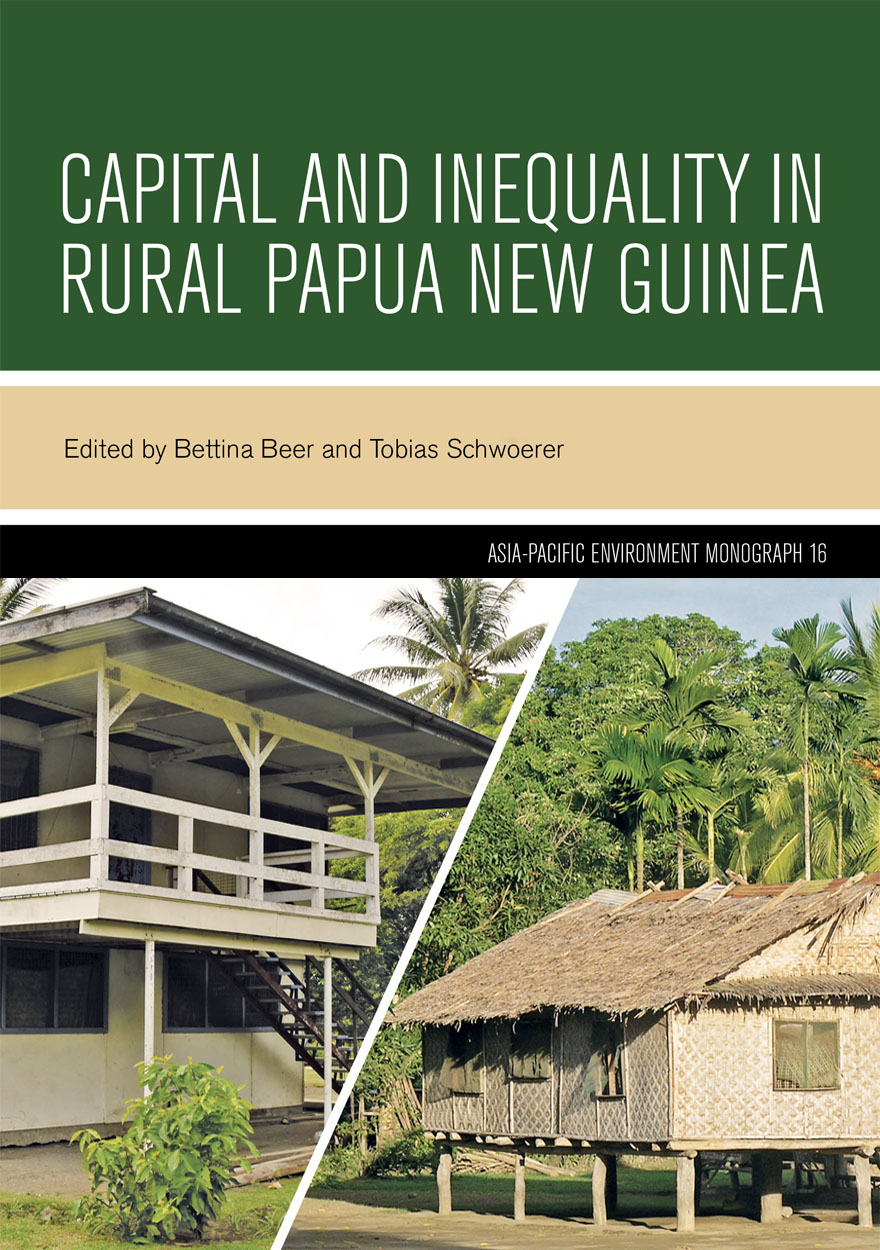
Capital and Inequality in Rural Papua New Guinea »
Edited by: Bettina Beer, Tobias Schwoerer
Publication date: July 2022
That large-scale capital drives inequality in states like Papua New Guinea is clear enough; how it does so is less clear. This edited collection presents studies of the local contexts of capital-intensive projects in the mining, oil and gas, and agro-industry sectors in rural and semi-rural parts of Papua New Guinea; it asks what is involved when large-scale capital and its agents begin to become significant nodes in hitherto more local social networks. Its contributors describe the processes initiated by the (planned) presence of extractive industries that tend to reinforce already existing inequalities, or to create and socially entrench novel inequalities.
The studies largely focus on the beginnings of such transformations, when hopes for social improvement are highest and economic inequalities still incipient. They show how those hopes, and the encompassing socio-political transformations characteristic of this phase, act to produce far-reaching impacts on ways of life, setting precedents for and embedding the social distribution of gains and losses. The chapters address a range of settings: the PNG Liquid Natural Gas pipeline; newly established eucalyptus and oil palm plantations; a planned copper-gold mine; and one in which rumours of development diffuse through a rural social network as yet unaffected by any actual or planned capital investments. The analyses all demonstrate that questions around land, leadership and information are central to the current and future social profile of local inequality in all its facets.

Rethinking Social Media and Extremism »
Edited by: Shirley Leitch, Paul Pickering
Publication date: June 2022
Terrorism, global pandemics, climate change, wars and all the major threats of our age have been targets of online extremism. The same social media occupying the heartland of our social world leaves us vulnerable to cybercrime, electoral fraud and the ‘fake news’ fuelling the rise of far-right violence and hate speech. In the face of widespread calls for action, governments struggle to reform legal and regulatory frameworks designed for an analogue age. And what of our rights as citizens? As politicians and lawyers run to catch up to the future as it disappears over the horizon, who guarantees our right to free speech, to free and fair elections, to play video games, to surf the Net, to believe ‘fake news’?
Rethinking Social Media and Extremism offers a broad range of perspectives on violent extremism online and how to stop it. As one major crisis follows another and a global pandemic accelerates our turn to digital technologies, attending to the issues raised in this book becomes ever more urgent.
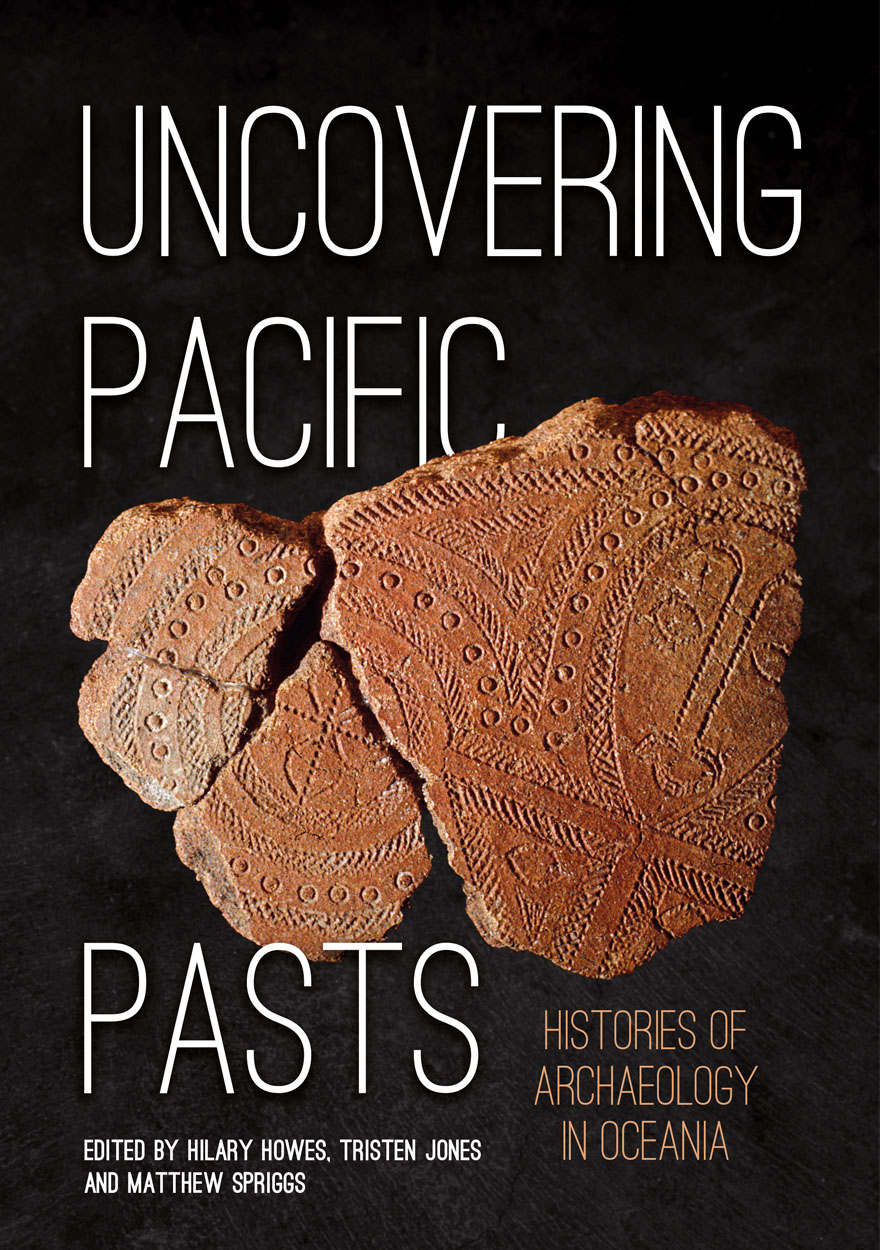
Uncovering Pacific Pasts »
Histories of Archaeology in Oceania
Publication date: June 2022
Objects have many stories to tell. The stories of their makers and their uses. Stories of exchange, acquisition, display and interpretation. This book is a collection of essays highlighting some of the collections, and their object biographies, that were displayed in the Uncovering Pacific Pasts: Histories of Archaeology in Oceania (UPP) exhibition. The exhibition, which opened on 1 March 2020, sought to bring together both notable and relatively unknown Pacific material culture and archival collections from around the globe, displaying them simultaneously in their home institutions and linked online at www.uncoveringpacificpasts.org. Thirty‑eight collecting institutions participated in UPP, including major collecting institutions in the United Kingdom, continental Europe and the Americas, as well as collecting institutions from across the Pacific.
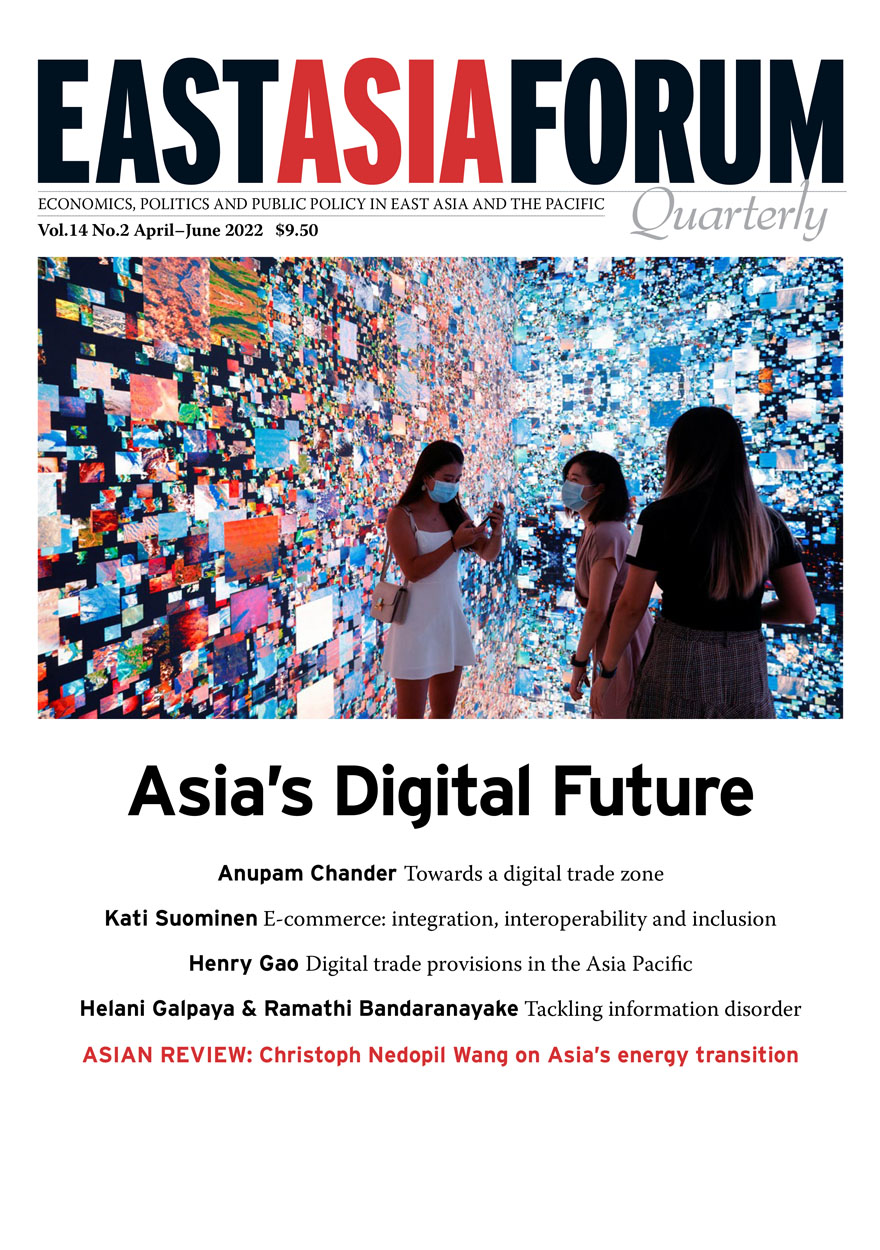
East Asia Forum Quarterly: Volume 14, Number 2, 2022 »
Publication date: June 2022
Once, the internet and world wide web promised a world of seamless connectivity for anyone with access to a digital device. As connectivity costs fell, the workplace became mobile, and digitalisation transformed industrial sectors, the laissez-faire agenda of digital developmentalists appeared to align with and promote democratic ideals. That was then. Today, even as cloud computing and digital transformation agendas have become mainstream, it is clear the threat of digital fragmentation must be actively addressed. As different rules around privacy, cybersecurity and digital sovereignty emerge to thwart interoperability, fragmentation is impacting both governance and infrastructure. Digital borders in China, cross-border data restrictions in Europe and America’s disavowal of Chinese telecom equipment make for increasing disconnection.
The articles in this EAFQ examine where commonalities are possible in the digital economy, and where we may expect more clashes than cross-cutting frameworks.
Download for free
Not available for purchase
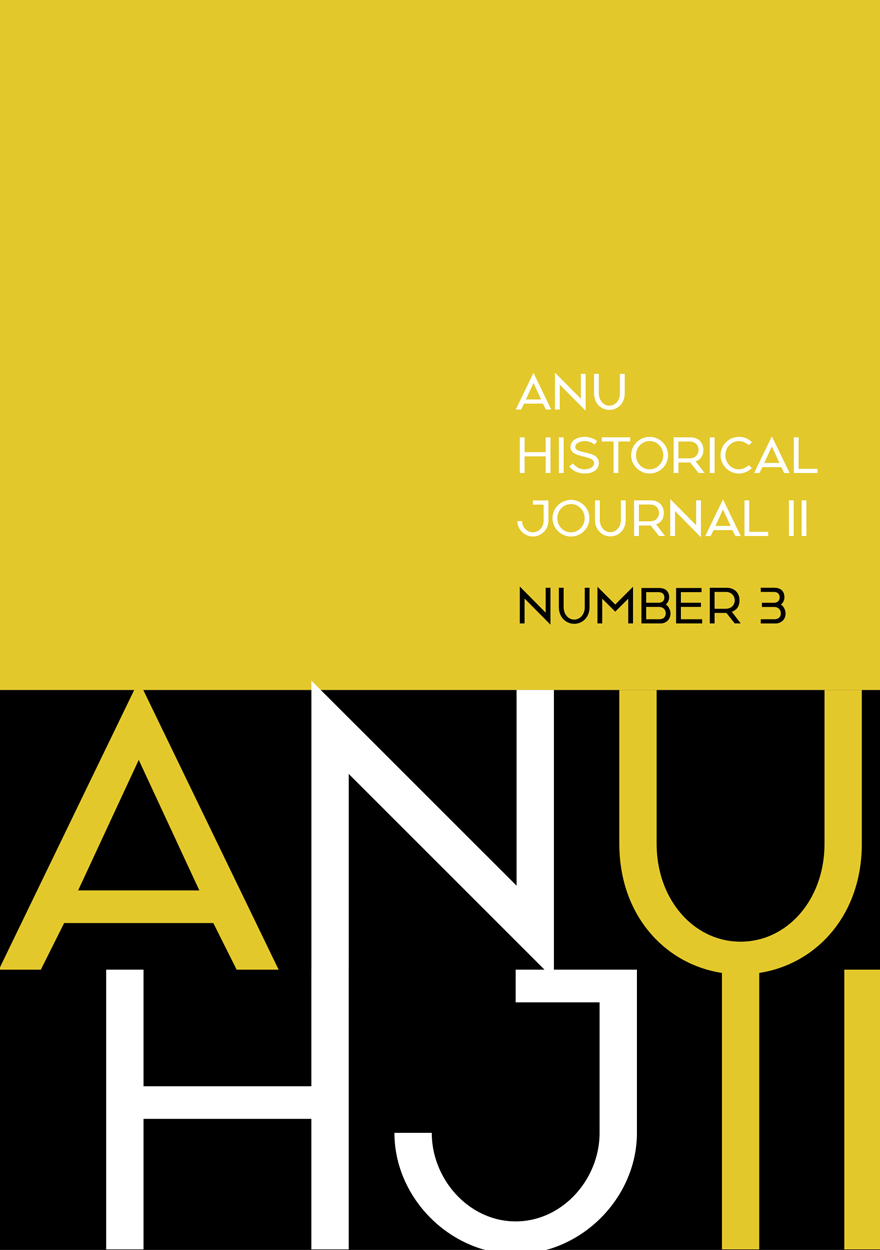
ANU Historical Journal II: Number 3 »
Publication date: June 2022
This issue of the ANU Historical Journal II brings together articles, reviews, lectures and artwork by historians from across Australia. It encompasses a wide range of subjects—local and foreign, modern and medieval—including Queensland politics in the 1960s and 1970s, the children's fiction of Victorian historian Margaret Kiddle, the moral lessons of Robin Hood tales, and the lives of Soviet ‘displaced persons’ in post-war Germany. The issue also exhibits a series of portraits of Australia's first eight prime ministers, as well as the short memoir of an ANU alumnus' experiences under the tutelage of Manning Clark. Finally, our reviewers discuss themes of colonialism, climate and transnational lives in recent published histories.
Download for free
Not available for purchase
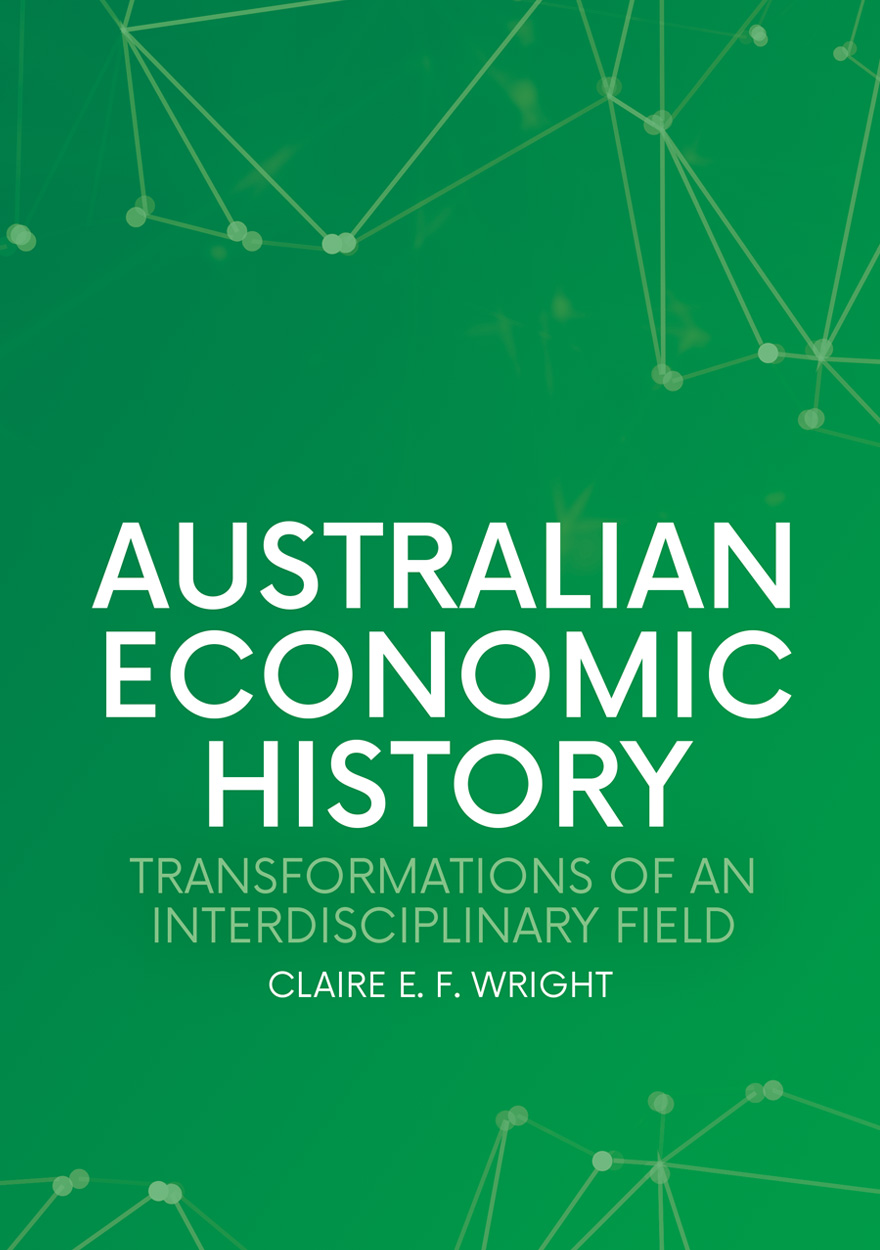
Australian Economic History »
Transformations of an Interdisciplinary Field
Authored by: Claire E. F. Wright
Publication date: June 2022
In a time of pandemics, war and climate change, fostering knowledge that transcends disciplinary boundaries is more important than ever. Economic history is one of the world’s oldest interdisciplinary fields, with its prosperity dependent on connection and relevance to disciplinary behemoths economics and history. Australian Economic History is the first history of an interdisciplinary field in Australia, and the first to set the field’s progress within the structures of Australian universities. It highlights the lived experience of doing interdisciplinary research, and how scholars have navigated the opportunities and challenges of this form of knowledge. These lessons are vital for those seeking to develop robust interdisciplinary conversations now and in the future.
‘This previously untold story of economic history in Australia exposes the centrality of economic thought and scholarship to Australian intellectual and political life. Deftly positioning economic history in an innovative institutional, place-based and person-focused narrative, Claire Wright entangles economics with the history of education to produce a tale of university interdisciplinarity, influence and impact. Written with vitality and bursting with both data and anecdote, this book makes an exceptional contribution to the intersecting fields of history, economics and higher education studies.’
– Hannah Forsyth, author of A History of the Modern Australian University.
‘Few readers would expect to find a classical tragedy in the story of an academic field. Yet that is what Claire Wright shows us in this study of Economic History, as it has been practiced in Australia. She traces the field from legendary beginnings to triumphant growth to organisational collapse - and renaissance on other terms. Carefully researched and vigorously written, this book raises questions about disciplines and interdisciplinary fields, universities and markets, and social bases of intellectual work, that are relevant to all fields today.’
– Raewyn Connell, author of The Good University
‘Australia proved a pioneer in the study of economic history, nurturing a discipline with innovative data and understanding of material trends. Yet by the 1990s economic history departments closed as senior scholars retired and the field was subsumed by conventional economics. In this absorbing study, Dr Claire Wright challenges the conventional account. She is tough-minded about financial and institutional pressures on the field, but cautiously optimistic about the future. It is a mistake, she argues, to see institutional representation as the benchmark of influence. Instead, the interdisciplinary nature of economic history has encouraged new research and teaching across the humanities and social sciences. With close attention to individual scholars and their university departments, and a deep sense of the trajectory of the field, Australian Economic History: Transformations of an Interdisciplinary Field is an original and important contribution to Australian intellectual history.’
– Glyn Davis, Distinguished Professor of Political Science in the Crawford School of Public Policy, The Australian National University
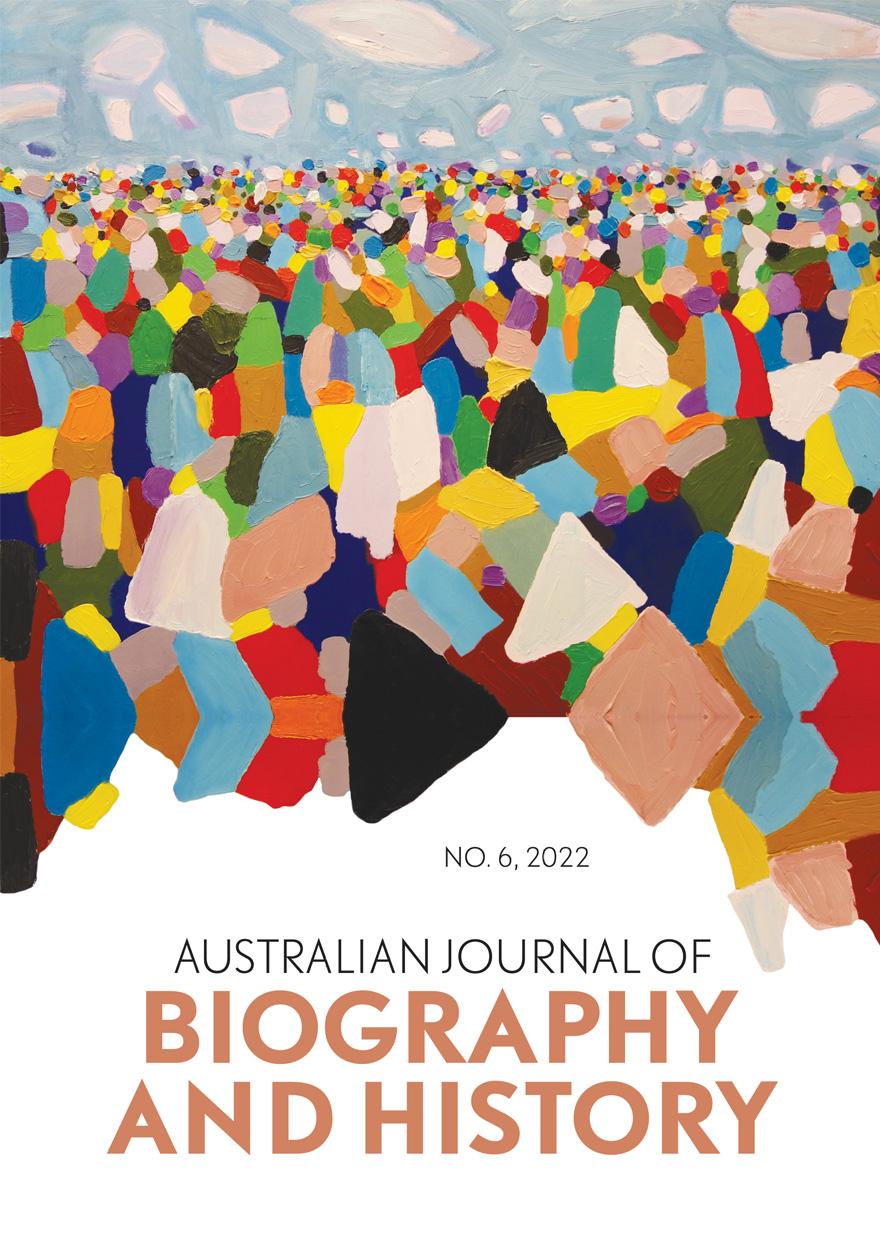
Australian Journal of Biography and History: No. 6, 2022 »
Publication date: May 2022
This special issue of Australian Journal of Biography and History, ‘Writing Slavery into Biography: Australian Legacies of British Slavery’, uses biographical approaches to explore how British slavery shaped the Australian colonies. It is the first stand-alone journal issue to feature an emerging body of historical work tracing the movement of people, investment and ideas from the Caribbean to Australia. Seven refereed articles and a roundtable discussion show how investment, imperial aspiration and migration turned towards Britain's ‘Second Empire’ in the aftermath of the Slavery Abolition Act 1833.
A substantive introduction reviews this emerging field of research and outlines preliminary findings. In her article, Jane Lydon examines the movement of two interconnected families (the Ridleys and Walcotts) from Demerara to Britain to the Swan River, where they acquired large land grants, participated in exploration and resource exploitation, and led the search for labour sources. Georgina Arnott investigates Western Australia’s first governor James Stirling’s biographical links to American and Caribbean slavery in light of ideas about race and labour that he promoted in Western Australia. And together Zoë Laidlaw and Georgina Arnott show how dictionaries of biography can be used alongside the Legacies of British Slavery database (hosted by University College London) to identify Australasian settlers with connections to slavery. They note the ways in which collective approaches to biography can reveal otherwise invisible patterns in global transfers of wealth, people and ideas.
With an eye to regionally specific processes of subjugation and enslavement in the northern Western Australian pearling and pastoralist industries, Malcolm Allbrook considers biography’s potential to illustrate the shadowy world of ‘blackbirding’ in relation to the perpetrators, the officials and the Aboriginal enslaved. Emma Christopher brings to life the colonial legacies of slavery in her account of Albert Messiah, Ishmael Williamson and John Henderson, sailors of African origin who worked on Pacific labour ships during the late nineteenth century, and whose lives illuminate the complex racial hierarchies of the Queensland frontier. Beth Robertson tells the layered story of her own great-great-grandfather, Edward Stirling, the illegitimate son of a British slave-owner and a woman of Ghanaian descent, whose material benefit from slavery helped him become a successful pastoralist and miner in South Australia, despite remaining the subject of racial prejudice.
Paul Arthur and Isabel Smith note the ‘biographical turn’ in museum exhibitions featuring stories of enslavement over the last two decades. They argue that this has enabled exhibitors to show stories of resistance, contingency and agency, albeit while navigating the ethical complexities of telling other people’s traumatic life stories. The feature section of this issue concludes with a roundtable discussion between Catherine Hall, Keith McClelland, Zoë Laidlaw, Jeremy Martens and Georgina Arnott on the topic of linking the legacies of British slave ownership to Australian colonisation. Here, Hall observes that biography, when used in combination with prosopography, reveals how the lives and family trajectories of slave owners were distinguished amongst imperial capitalists at large. This issue builds understanding of the precise ways that slavery shaped the Australian colonies.
Download for free
Not available for purchase
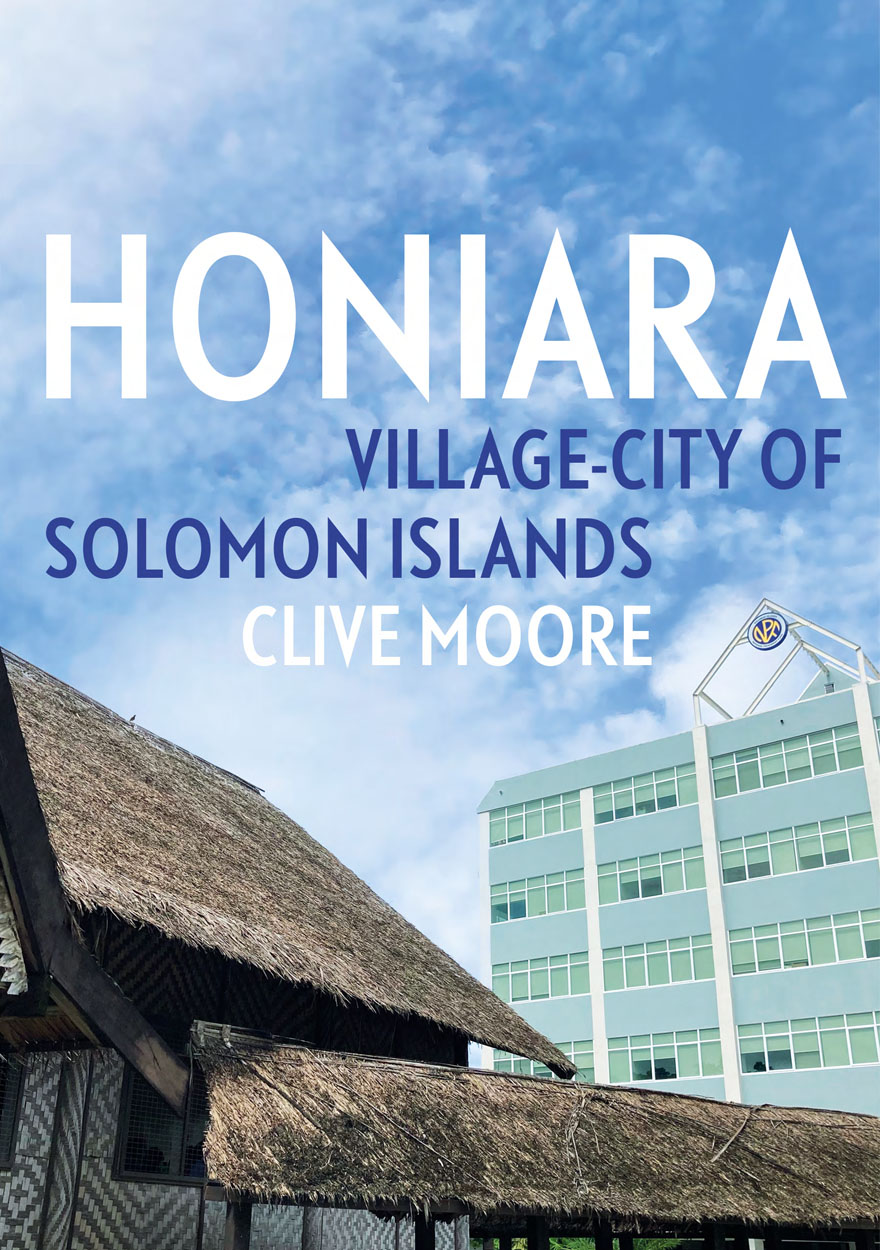
Honiara »
Village-City of Solomon Islands
Authored by: Clive Moore
Publication date: May 2022
Nahona`ara—means ‘facing the `ara’, the place where the southeast winds meet the land just west of Point Cruz. Nahona`ara became Honiara, the capital city of Solomon Islands with a population of 160,000, the only significant urban centre in a nation of 721,000 people.
Honiara: Village-City of Solomon Islands views Honiara in several ways: first as Tandai traditional land; then as coconut plantations between the 1880s and 1930s; within the British protectorate (1893–1978) and its Guadalcanal District; in the 1942–45 war years, which created the first urban settlement; in the directly post-war period until 1952 as the new capital of the protectorate, replacing Tulagi; and then as the headquarters of the Western Pacific High Commission (WPHC) between 1953 and 1974. Finally, in 1978, Honiara became the capital of the independent nation of Solomon Islands and the headquarters of Guadalcanal Province.
The book argues that over decades there have been four and sometimes five changing and intersecting Honiara ‘worlds’ operating at one time, each of different social, economic and political significance. The importance of each group—British, Solomon Islanders, other Pacific Islanders, Asians, and more recently the 2003–17 presence of the Regional Assistance Mission to Solomon Islands (RAMSI)—has changed over time.
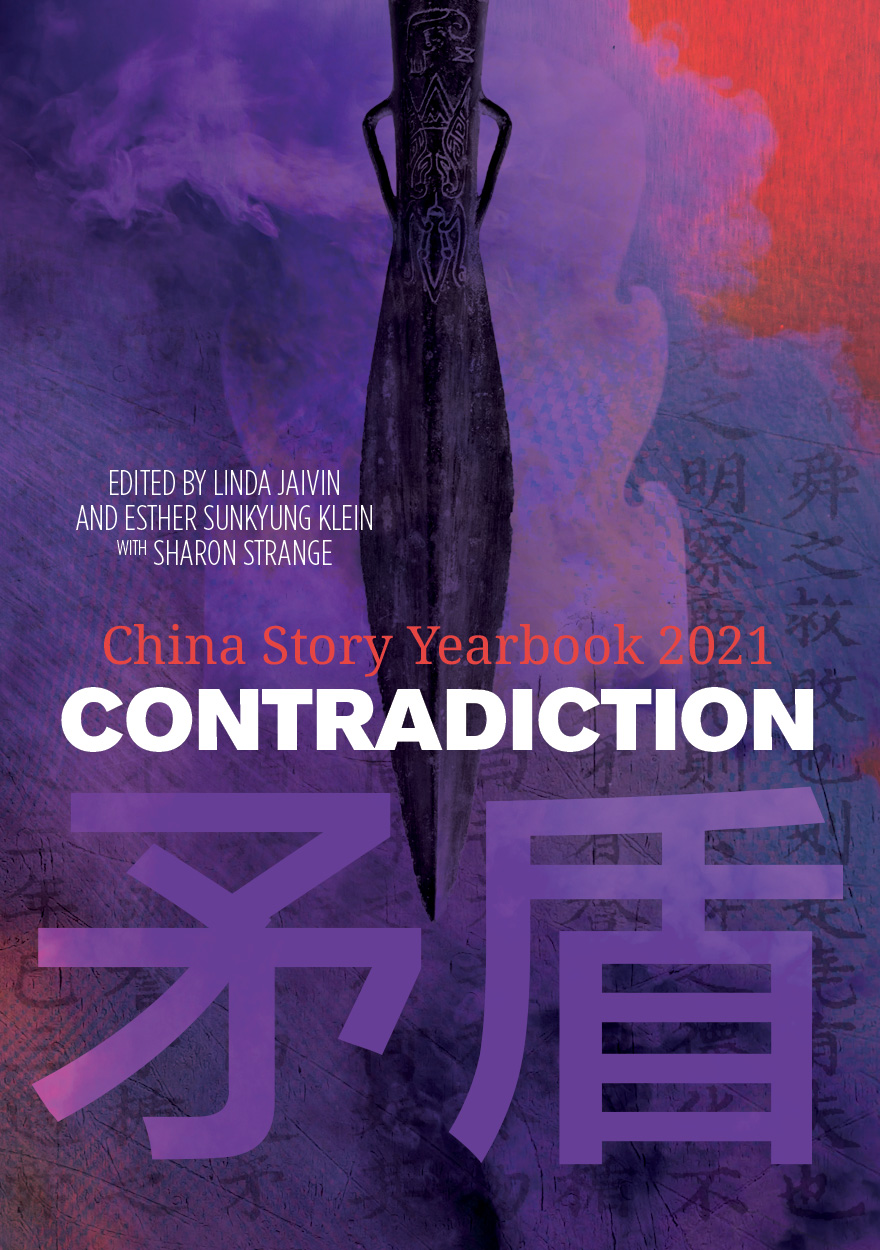
Contradiction »
Edited by: Linda Jaivin, Esther Sunkyung Klein, Sharon Strange
Publication date: May 2022
In the second year of the COVID-19 pandemic, the many facets of crisis—the theme of last year’s China Story Yearbook—fractured into pictures of contradiction throughout Chinese society and the Chinese sphere of influence.
Contradiction: the ancient Chinese word for the concept holds within it the image of an unstoppable spear meeting an impenetrable shield. It describes a wide range of phenomena that English might express with words like conflict, clash, paradox, incongruity, disagreement, rebuttal, opposition, and negation. This year’s Yearbook presents stories of action and reaction, of motion and resistance.
The theme of contradiction plays out in different ways across the different realms of society, culture, environment, labour, politics, and international relations. Great powers do not necessarily succeed in dominating smaller ones. The seemingly irresistible forces of authoritarianism, patriarchy, and technological control come up against energised and surprisingly resilient means of resistance or cooptation. Efforts by various authorities to establish monolithic narrative control over the past and present meet a powerful insistence on telling the story from an opposite angle. The China Story Yearbook: Contradiction offers an accessible take on this complex and contradictory moment in the history of China and of the world.
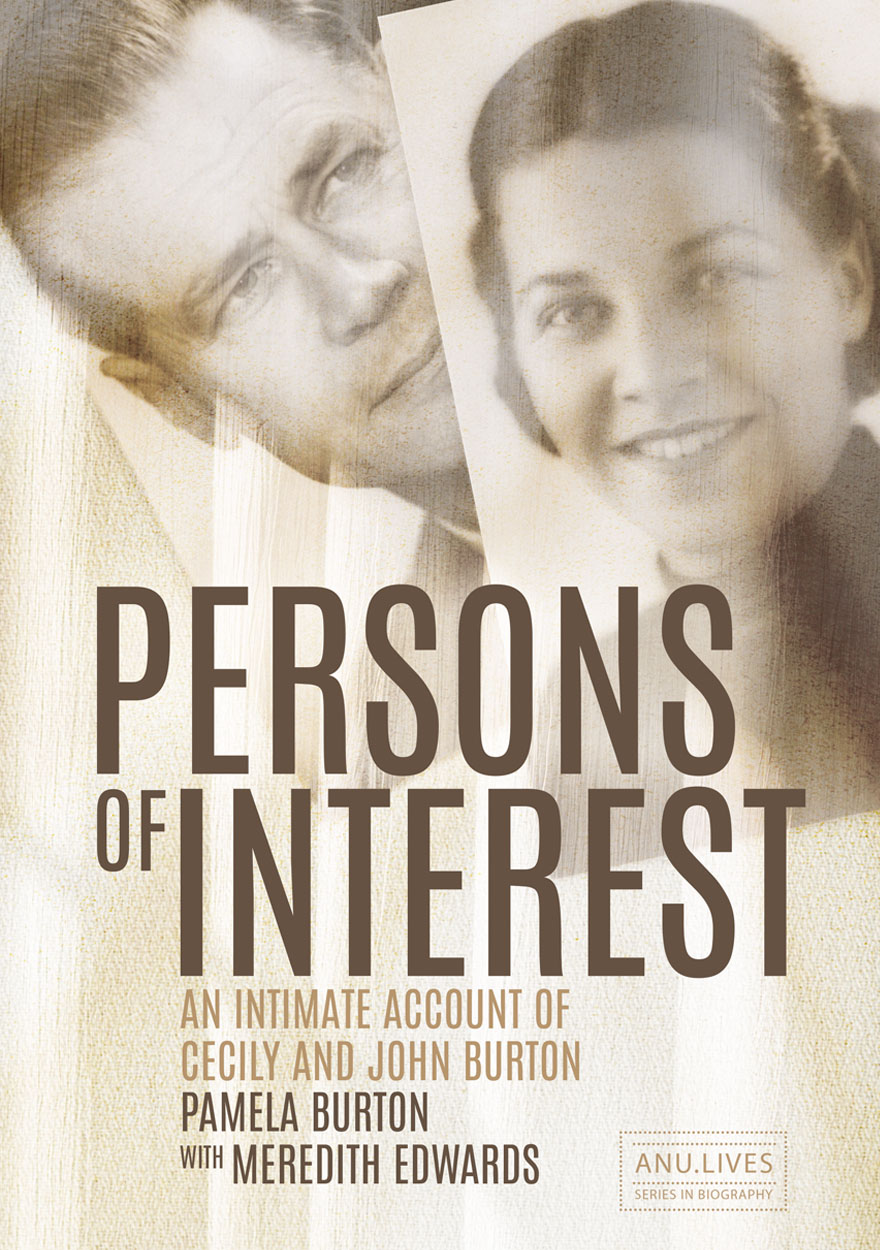
Persons of Interest »
An Intimate Account of Cecily and John Burton
Authored by: Pamela Burton, Meredith Edwards
Publication date: April 2022
A world in upheaval; two lives lived under stress … This story is set in the social and political landscape of pre– and post–World War II. It tells two vastly different tales of Cecily and John’s lives in Australia and overseas, as nations clashed, and governments and international organisations tried to remake the world.
Cecily Nixon knew that marrying John Burton would be bad for her. But she loved him and, impressed with this handsome, sullen young man and his belief that he could change the world for the better, saw her role in life as to serve the world through John.
Cecily’s story is a deeply personal and psychological one of love, duty and betrayal that explores the complexities of relationships. In a world that overwhelmed her, Cecily searched for ‘wholeness’ and delved deep into her psyche to find herself and emerge from John’s shadow.
John has been known as an influential and controversial young head of Australia’s Department of External Affairs – and as a would-be politician. It is less known that he was also an innovative farmer, bookseller, entrepreneur, arts patron and writer. He received international acclaim for his later work in conflict analysis and resolution.
These combined stories of courage and achievement unfold amid political intrigue and psychological trauma. ASIO surveillance, love triangles, loyalty, infidelity and tragedy all play their part in the Burtons’ lives.
'A remarkable memoir of a remarkable couple, exploring the fraught dynamic between the personal and political facets of their lives, the perspective lying at the core of modern feminism. Pamela Burton’s own insights are those of their youngest child, on whom the disruptions of the 1960s and 1970s had a heavy impact, but also that of her maturity, bringing her sharp forensic skills to the project. Assisted by Meredith Edwards, her eldest sister, Burton has given us an unflinchingly honest and utterly gripping record of our lives and times.'
— Sara Dowse, author of West Block and Sapphires
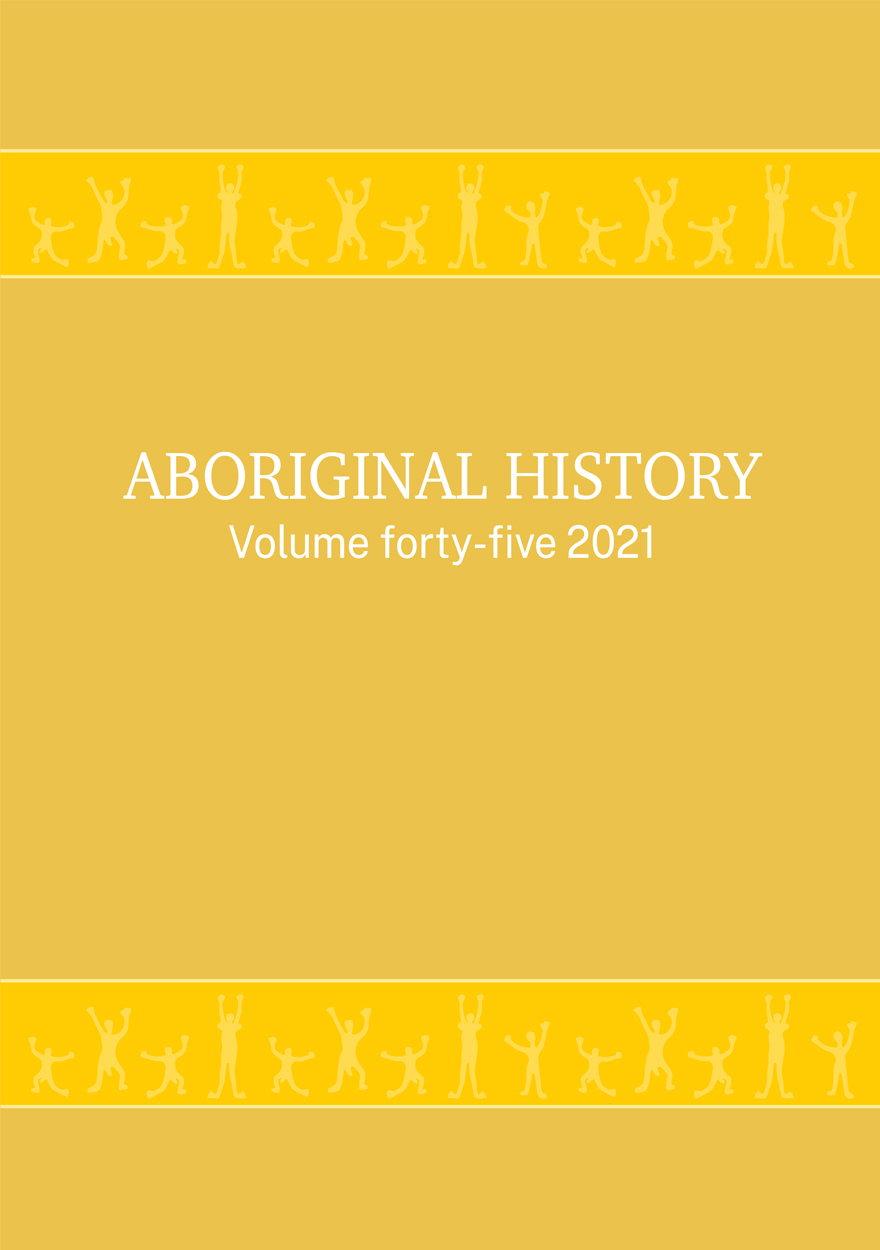
Aboriginal History Journal: Volume 45 »
Edited by: Crystal McKinnon, Ben Silverstein
Publication date: April 2022
This volume begins with Michael Aird, Joanna Sassoon and David Trigger’s meticulous research tracing the well-known but sometimes confused identity of Jackey Jackey of the Lower Logan River in south-east Queensland. Emma Cupitt describes the multivocality and intertextuality of Radio Redfern’s coverage of Aboriginal protests in Sydney as the 1988 Australian Bicentenary celebrations took place elsewhere in the city. Similarly approaching sources for their multiplicity, Matt Poll and Amanda Harris provide a reading of the ambassadorial work performed by assemblages of Yolngu bark paintings in diverse exhibition spaces after the Second World War.
Cara Cross historicises the production and use of mineral medicine—or lithotherapeutics—derived from Burning Mountain in Wonnarua Country, issuing a powerful call for the recognition of Indigenous innovation as cultural heritage. In a collaborative article, Fred Cahir, Ian Clark, Dan Tout, Benjamin Wilkie and Jidah Clark read colonial records against the grain to narrate a nineteenth-century history of Victorian Aboriginal relationships with fire, strengthening the case for the revitalisation of these fire management practices. And, based on extensive oral history work, Maria Panagopoulos presents Aboriginal narrations of the experience of moving—or being moved—from the Manatunga settlement on the outskirts of Robinvale into the town itself, on Tati Tati Country in the Mallee region of Victoria.
In addition to a range of book reviews, we are also pleased to include Greg Lehman’s review essay concerning Cassandra Pybus’s recent award-winning Truganini: Journey through the Apocalypse, which considers the implications of our relationships with history and how they help to think through practices of researching and writing Aboriginal history.
Download for free
Not available for purchase

Youth in Fiji and Solomon Islands »
Livelihoods, Leadership and Civic Engagement
Authored by: Aidan Craney
Publication date: April 2022
Fiji, Solomon Islands and the wider Pacific region are experiencing a ‘youth bulge’. As such, the livelihoods pathways of youth in these countries will be a key determinant of their social, political and economic futures. This book looks at the cultural expectations of Fijian and Solomon Islander youth, as well as the socio-political positioning of youth activists. It investigates how formal and informal structures – such as education, employment and civil society – affect the ability of youth to achieve their potential and actively engage in their societies. Through this investigation, a recurrent theme develops of the structural minimisation of youth in these countries: they are ‘to be seen but not heard’. But Pacific youth are more than citizens in waiting; they are already important members of their communities, with varying degrees of engagement in critical civil society. More than simply leaders of tomorrow, they are partners for today. Youth in Fiji and Solomon Islands documents and details some of the ways that young people in Fiji and Solomon Islands are forging their way as leaders not just of youth, but of their communities. Whilst the majority of youth are engaging in society in acceptable, social ascribed ways, and the majority of adults resist youth participation as a technique to maintain the social status quo, a small but influential cohort of both youth and adults are creating spaces for today’s young people to help to shape the developmental futures of the Great Ocean States of the Pacific.

Mobilising the Masses »
Populist Conservative Movements in Australia and New Zealand During the Great Depression
Authored by: Matthew Cunningham
Publication date: April 2022
The radical right has gained considerable ground in the twenty-first century. From Brexit to Bolsonaro and Tea Partiers to Trump, many of these diverse manifestations of right-wing populism share a desire to co‑opt or supplant the mainstream parties that have traditionally held sway over the centre right. It is now more important than ever to understand similar moments in Australian and New Zealand history.
This book concerns one such moment—the Great Depression—and the explosion of large, populist conservative groups that accompanied the crisis. These ‘citizens’ movements’, as they described themselves, sprang into being virtually overnight and amassed a combined membership in the hundreds of thousands. They staunchly opposed party politicians and political parties for their supposed inaction and infighting. Whether left or right, it did not matter. They wanted to use their vast numbers to pressure their governments into enacting proposals they believed were in the national interest: a smaller, more streamlined government where Members of Parliament were free to act according to their conscience rather than their party allegiance. At the same time, the movements prescribed antidotes for their nations’ economic ill‑health that were often radical and occasionally anti-democratic.
At the height of their power, they threatened to disrupt or outright replace the centre right political parties of the time—particularly in Australia. At a time when fascism and right-wing authoritarianism were on the march internationally, the future shape of conservative politics was at stake.

East Asia Forum Quarterly: Volume 14, Number 1, 2022 »
Publication date: March 2022
Economic cooperation in East Asia has progressed in its own distinct way, and the conclusion of the Regional Comprehensive Economic Partnership (RCEP) in 2019 is a huge achievement of strategic significance that pushes back against threats to the multilateral system. RCEP is the world’s largest regional pact in terms of GDP, trade volume, foreign direct investment and population. This issue of East Asia Forum Quarterly looks at RCEP going forward, the ways Asia’s largest economies are embracing the deal, the supply chain and manufacturing trends that are emerging and the RCEP framework for dealing with issues beyond those already negotiated.
Download for free
Not available for purchase

International Review of Environmental History: Volume 8, Issue 1, 2022 »
Edited by: James Beattie, Brett Bennett
Publication date: March 2022
This timely special issue of the International Review of Environmental History focuses on animals and epidemics in modern East Asia. The global pandemic of Covid-19 has forced us to think more deeply about the interrelations between animals, both human and non-human, and epidemics. Moreover, the intense attention on East Asia in this context demands that we study the region in the thematic matrix of health, environment, animals, sociocultural traditions, and geopolitics. This collection comprises two parts. The first part consists of three research articles and an extensive commentary. The articles examine, respectively, rabies and rabid dogs in early twentieth-century China, venomous snakes and tropical medicine in colonial Taiwan, and epidemics and animal rights movements in contemporary China. The second part includes three reflective essays on topics of immediate relevance: animals and health campaigns in Mao-era China; insects, particularly silkworms, in vaccine research; and the dominant but flawed scientific paradigm of emerging zoonotic epidemics. The essays are followed by a broad commentary that provides a global and comparative perspective.
Download for free
Not available for purchase
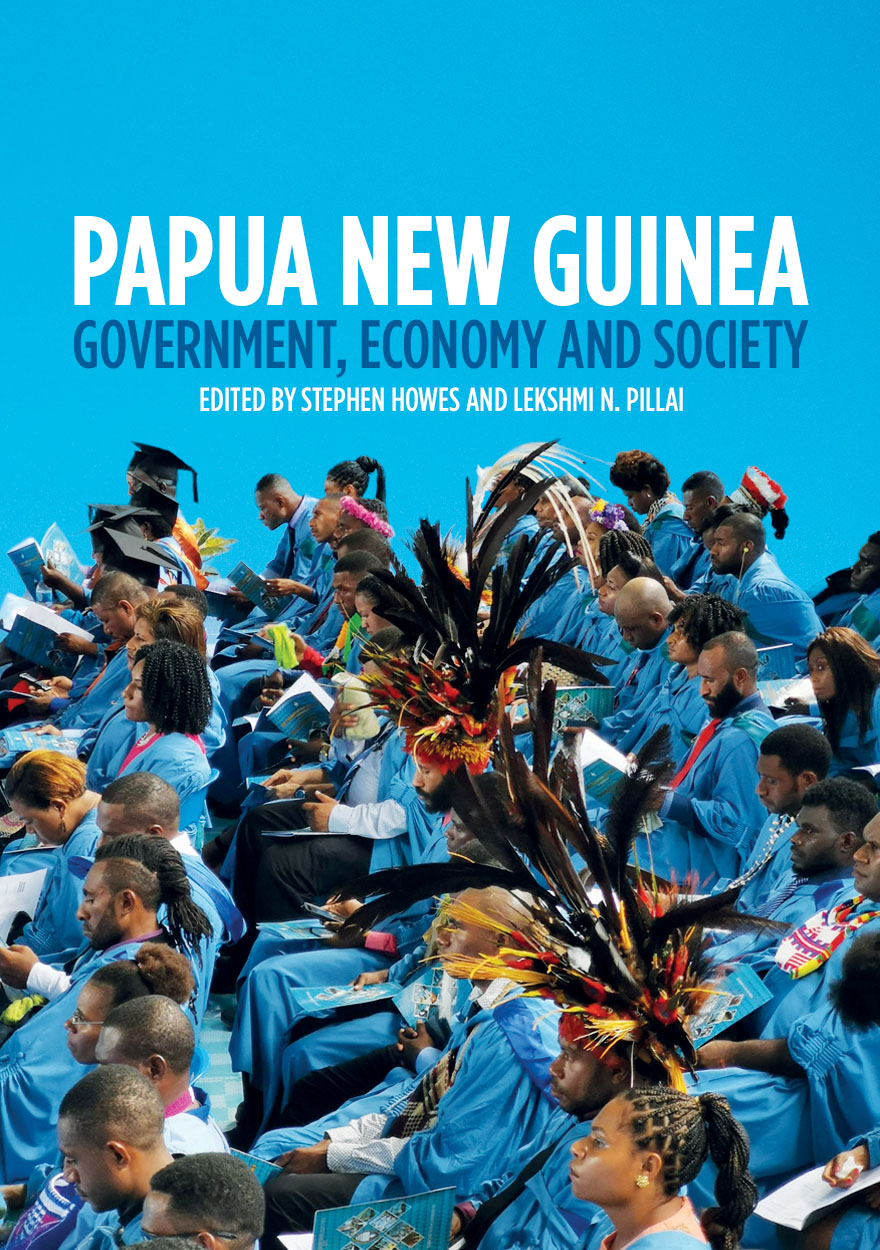
Papua New Guinea: Government, Economy and Society »
Edited by: Stephen Howes, Lekshmi N. Pillai
Publication date: March 2022
Papua New Guinea (PNG), a nation of now almost nine million people, continues to evolve and adapt. While there is no shortage of recent data and research on PNG, the two most recent social science volumes on the country were both written more than a decade ago. Since then, much has changed and much has been learnt. What has been missing is a volume that brings together the most recent research and reports on the most recent data. Papua New Guinea: Government, Economy and Society fills that gap.
Written by experts at the University of Papua New Guinea and The Australian National University among others, this book provides up-to-date surveys of critical policy issues for PNG across a range of fields, from elections and politics, decentralisation, and crime and corruption, to PNG’s economic trajectory and household living standards, to uneven development, communication and the media. The volume’s authors provide an overview of the data collected and research undertaken in these various fields in an engaging and accessible way.
Edited by Professor Stephen Howes and Professor Lekshmi N. Pillai, Papua New Guinea: Government, Economy and Society is a must-read for students, policymakers and anyone interested in understanding this complex and fascinating country.
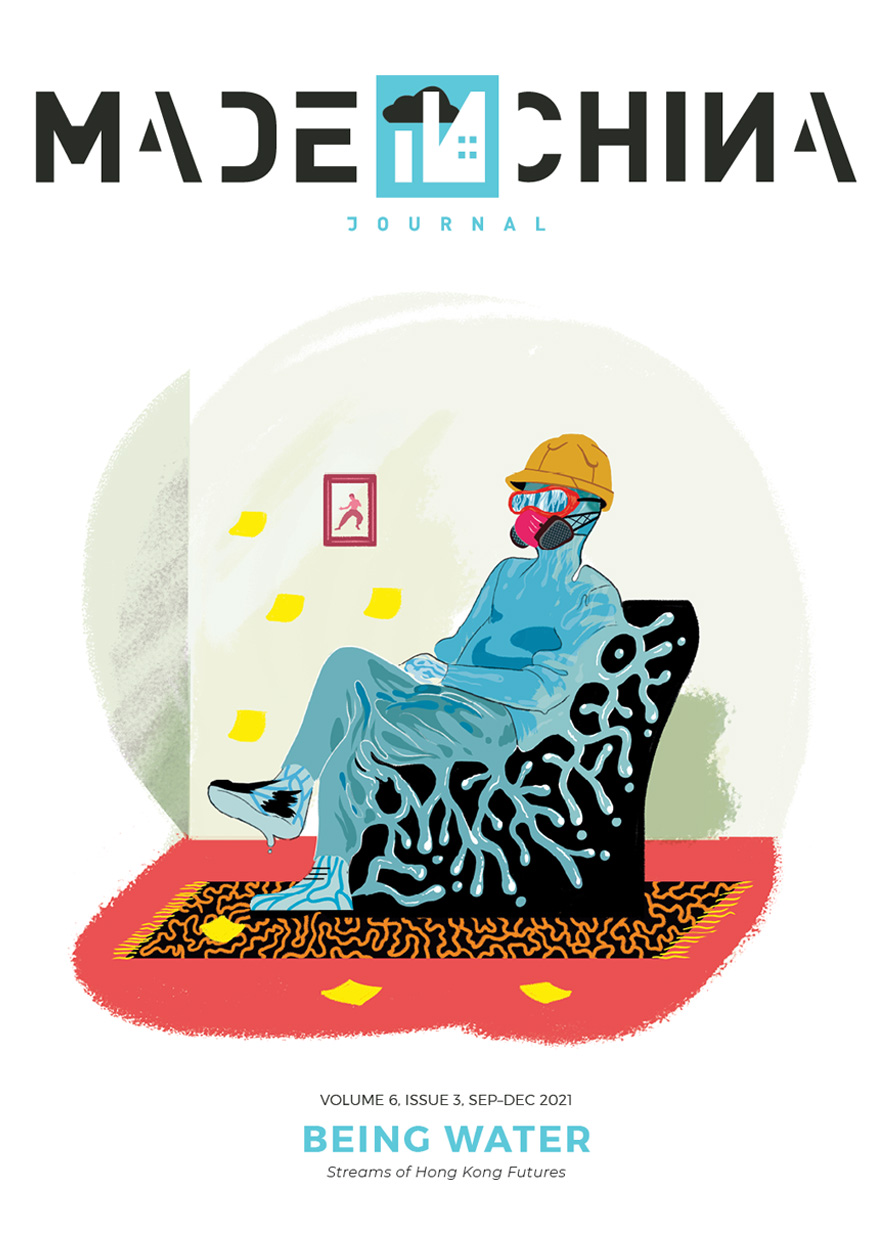
Made in China Journal: Volume 6, Issue 3, 2021 »
Edited by: Ivan Franceschini, Nicholas Loubere, Shui-yin Sharon Yam
Publication date: March 2022
In 2019 and 2020, Hongkongers witnessed—and, in many cases, participated in—one of largest and most exacting grassroots movements in the city’s history. Triggered by a proposed Extradition Bill and fuelled by a decades-long struggle for democracy and political freedom, the decentralised protest quickly seeped into the city’s everyday life. While some of the protestors confronted the police in black blocs, others participated in strikes, sit-ins, and economic boycotts. To suppress the movement, the Hong Kong police deployed an alarming use of force and violence. To put an end to the movement once and for all, in June 2020 the Chinese and Hong Kong government abruptly implemented the National Security Law (NSL), effectively rendering any expressions of dissent seditious and illegal. Since then, prominent pro-democracy activists and politicians have either gone into exile or have been imprisoned under the NSL; books penned by activists have been removed from the shelves of public libraries; key historical events and political concepts have been censored from textbooks; and around 60 advocacy groups and independent media outlets were forced to disband. Given the chilling effect of the NSL, many Hongkongers have chosen to emigrate. Amid this ongoing crackdown, this issue of the Made in China Journal takes stock of the aftermath of the protest movement and reflects on the sociopolitical changes that are taking place in Hong Kong’s political and civil society in the post-NSL era.
Download for free
Not available for purchase

Archaeological Perspectives on Conflict and Warfare in Australia and the Pacific »
Edited by: Geoffrey Clark, Mirani Litster
Publication date: March 2022
When James Boswell famously lamented the irrationality of war in 1777, he noted the universality of conflict across history and across space – even reaching what he described as the gentle and benign southern ocean nations. This volume discusses archaeological evidence of conflict from those southern oceans, from Palau and Guam, to Australia, Vanuatu and Tonga, the Marquesas, Easter Island and New Zealand. The evidence for conflict and warfare encompasses defensive earthworks on Palau, fortifications on Tonga, and intricate pa sites in New Zealand. It reports evidence of reciprocal sacrifice to appease deities in several island nations, and skirmishes and smaller scale conflicts, including in Easter Island. This volume traces aspects of colonial-era conflict in Australia and frontier battles in Vanuatu, and discusses depictions of World War II materiel in the rock art of Arnhem Land. Among the causes and motives discussed in these papers are pressure on resources, the ebb and flow of significant climate events, and the significant association of conflict with culture contact. The volume, necessarily selective, eclectic and wide-ranging, includes an incisive introduction that situates the evidence persuasively in the broader scholarship addressing the history of human warfare.

Voluntary Assisted Dying »
Law? Health? Justice?
Edited by: Daniel J Fleming, David J Carter
Publication date: February 2022
Since the introduction of voluntary assisted dying in 2019, a ‘new moment’ in the governance of life and death has opened up within the Australian context. This new moment demands new questions be asked regarding the regime and its effects in this new era for law, health care and justice.
This collection brings together critical perspectives on voluntary assisted dying itself, and on various practices adjacent to it, including questions of state power, population ageing, the differential treatment of human and non-human animals at the time of death, the management of health care processes through silent ‘workarounds’, and the financialisation of death.
This book provides an overview of the first Australian regime, and then introduces these diverse critical views, broadening our engagement with euthanasia and voluntary assisted dying beyond the limited, but important, debates about law reform and its particular enactment in Australia.

Macrocriminology and Freedom »
Authored by: John Braithwaite
Publication date: February 2022
How can power over others be transformed to ‘power with’? It is possible to transform many institutions to build societies with less predation and more freedom. These stretch from families and institutions of gender to the United Nations. Some societies, times and places have crime rates a hundred times higher than others. Some police forces kill at a hundred times the rate of others. Some criminal corporations kill thousands more than others. Micro variables fail to explain these patterns. Prevention principles for that challenge are macrocriminological.
Freedom is conceived in a republican way as non-domination. Tempering domination prevents crime; crime prevention reduces domination. Many believe a high crime rate is a price of freedom. Not Braithwaite. His principles of crime control are to build freedom, temper power, lift people from poverty and reduce all forms of domination. Freedom requires a more just normative order. It requires cascading of peace by social movements for non-violence and non-domination. Periods of war, domination and anomie cascade with long lags to elevated crime, violence, inter-generational self-violence and ecocide. Cybercrime today poses risks of anomic nuclear wars.
Braithwaite’s proposals refine some of criminology’s central theories and sharpen their relevance to all varieties of freedom. They can be reduced to one sentence. Strengthen freedom to prevent crime, prevent crime to strengthen freedom.
‘A true magnum opus, Macrocriminology and Freedom is a thought provoking and generative book from one of criminology’s intellectual giants. John Braithwaite reaches far and wide across societies, time, and disciplines to advance no less than a theory of how to build a society that simultaneously reduces both domination and crime. His ambitious ideas on cascades of non-dominating collective efficacy and crime prevention, for example, and their connections to social movements and political freedom, go well beyond usual criminological discourse. Chock full of theoretical propositions and bold insights, this a book that will keep criminologists busy for years. Macrocriminology and Freedom should not just be read, but better yet, savoured.’
– Robert J. Sampson, Henry Ford II Professor of the Social Sciences, Harvard University
‘In this majestic theorisation of the relationship between crime and freedom John Braithwaite isolates the unique power of macrocriminology as a lens through which to comprehend and challenge many of the fundamental crises facing our planet. Very few scholars have the breadth and overview to succeed in a mission of this order … Braithwaite does. This extraordinary book is an object lesson for all who seek to understand and resist domination and the crimes of power that flow from it.’
– Penny Green, Professor of Law and Globalisation, Queen Mary University of London
‘For over 40 years, John Braithwaite has been a voice of wisdom, hope and humanity in criminology. This dazzling new book weaves together all the main themes of his influential work, reanimating many of the core concepts of the discipline, as well as incorporating interdisciplinary resources from south and north, east and west, to produce an elegant and ambitious explanatory and normative account of crime as freedom-threatening domination. Decentring criminal justice as the solution to crime, Braithwaite shows that, on a global scale, the aspiration to tackle crimes, ranging from interpersonal violence through corporate crimes to ecocide, lies in the development of freedom-enhancing, power-tempering institutions in the political, economic and social spheres.’
– Nicola Lacey, Professor of Law, Gender and Social Policy, London School of Economics
‘Macrocriminology and Freedom is a criminological epic, an expansive and erudite story that sweeps across history and contexts. The book is frightening in showing how cascading events can produce catastrophes from crime to environmental destruction. But in the end, its message is hopeful, identifying pathways—or “normative rivers”—for guiding freedom from domination and crime. Drawing on his distinguished career, John Braithwaite has bestowed an extraordinary gift—a book, like other masterpieces, that will yield special insights each time we take an excursion through its pages.’
– Francis T. Cullen, Distinguished Research Professor Emeritus, University of Cincinnati
‘In this engaging book John Braithwaite reinvigorates discussions about crime and its control. While advocating a macro approach, the book is punctuated not only with insights and data from smaller-scale studies conducted in a range of jurisdictions, but also with auto-biographical vignettes. The effect creates a deeply personal account of the perils of state, non-state and market violence and authoritarianism and the potential and indeed duty, of criminologists to work towards their reduction, by refocusing their efforts on explaining and tackling crime in its myriad of forms.’
– Mary Bosworth, Professor of Criminology, University of Oxford and Monash University
‘John Braithwaite has had a unique influence on criminology globally. In this encyclopaedic text he synthesises a wealth of criminological knowledge, particularly in the sphere of anomie theory, into broader debates about the nature of domination and freedom in contemporary society. He defends the relevance of criminological theory, while urging criminology to be activist rather than reactive and technocratic, counter-hegemonic rather than neutral. Not for the first time, John Braithwaite has challenged criminologists to construct theories that cut across micro and macro structures. This book will stir debate. It deserves a broad readership.’
– Harry Blagg, Professor of Criminology, University of Western Australia

Georges River Blues »
Swamps, Mangroves and Resident Action, 1945–1980
Authored by: Heather Goodall
Publication date: February 2022
The lower Georges River, on Dharawal and Dharug lands, was a place of fishing grounds, swimming holes and picnics in the early twentieth century. But this all changed after World War II, when rapidly expanding industry and increasing population fell heaviest on this river, polluting its waters and destroying its bush.
Local people campaigned to defend their river. They battled municipal councils, who were themselves struggling against an explosion of garbage as population and economy changed. In these blues (an Australian term for conflict), it was mangroves and swamps that became the focus of the fight. Mangroves were expanding because of increasing pollution and early climate change. Councils wanted to solve their garbage problems by bulldozing mangroves and bushland, dumping garbage and, eventually, building playing fields. So they attacked mangroves as useless swamps that harboured disease. Residents defended mangroves by mobilising ecological science to show that these plants nurtured immature fish and protected the river’s health.
These suburban resident action campaigns have been ignored by histories of the Australian environmental movement, which have instead focused on campaigns to save distant ‘wilderness’ or inner-city built environments. The Georges River environmental conflicts may have been less theatrical, but they were fought out just as bitterly. And local Georges River campaigners – men, women and often children – were just as tenacious. They struggled to ‘keep bushland in our suburbs’, laying the foundation for today’s widespread urban environmental consciousness.
Cover: Ruth Staples was a courageous Georges River campaigner who lived all her life around Lime Kiln Bay at Oatley West. She kept on fighting to regenerate the river until her death, aged 90, in 2020.



